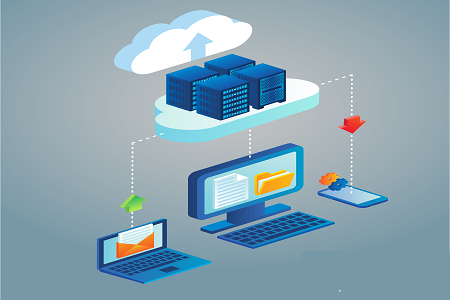Salient IT Services › Data backup storage in Auburn
What you need to know about data backup storage in Auburn
For many SMBs, organizing data backups is a balancing act. On the one hand, they need to advance their business goals as much as possible. On the other hand, they usually need to keep costs as low as possible. Data backup storage is a major part of the cost of data backups, so it’s important to use it as astutely as possible. With that in mind, here is a quick guide to what you need to know about data backup storage in Auburn.
Your data backup storage location matters at least as much as your medium
Even though we’re all used to accessing data online, at the end of the day, your data backups reside on physical storage somewhere in the world. You need to know where that is as it may have significant legal implications. If it doesn’t now, then it might not be too long before it does.
Similarly, you need to know not only who has access to (or even contact with) your data, but also where they are located. In the case of your own staff, this will be obvious, but if you are using IT services vendors you will need to check where they are based operationally as well as legally. Given the importance of data security, the safest option by far, especially for SMBs, is to stick with local IT services vendors who use local staff and are accountable to local courts.
The better you manage your production data, the less you’ll pay for data backup storage
A data backup is a snapshot of your production data. Therefore anything you do to improve the management of your production data will improve your data backups. In particular, anything you do to minimize, clean, and organize your production data can reduce the cost of your data backup storage. This is particularly obvious in the cloud, where you pay for exactly what you use for exactly as long as you use it, but it also has implications for data centers.
In the cloud, you can fine-tune your storage settings to reduce cost and improve efficiency
The logs from your production systems (and staff input) can give you a lot of information about how data is used. This can give you a solid foundation for segmenting your data according to your business priorities and assigning the fastest storage to the data which is needed most urgently (and vice versa). While this can take a lot of effort (and some trial and error), it can result in significant cost savings.

Once you have completed this exercise, you can use the results to inform your Recovery Time Objectives (which can be assigned per data segment) and hence the speed of storage you need to use for your business data backups. This should be much easier (since you will be acting on information you already have) and can make even larger savings (since you will typically have two data backups, one local and one off-site).
The public cloud is generally the most sensible location for your off-site data backup storage
If you’re already in a public cloud, then there is an obvious argument for simply using another public cloud as your off-site data backup storage location. If, however, you’re in a private cloud, or a data center, then the public cloud is still likely to be the most sensible option.
If you use a private cloud, then you’re already working in an online environment, so it makes sense to hold your data backups in an online environment. Running a second private cloud full-time is extremely expensive. It is much more affordable to use the public cloud as a data backup storage location and then, if necessary, transfer your data backups to a second private cloud that you activate as needed, for example in business continuity/disaster recovery situations.
If you use a data center, then you will need to use physical storage for your local backup. For your off-site backup, however, you have the choice between transporting physical storage to an off-site facility or using the cloud.
In principle, using off-line storage offers the very highest degree of security as it is, by definition, safe from cyberattacks. While this is true, it is, however, more vulnerable to other threats. First of all, it increases your vulnerability to loss of productivity through extended downtimes. This is even before you consider the possibility of issues with the road network. Secondly, it opens up the possibility that your offline storage medium will fail without you being aware of it.
This is not really a great concern if you are using tapes as these are very robust. Hard drives, by contrast, are notorious for failing, even when kept on-site in data centers. They are extremely vulnerable to being damaged in transit or failing during storage.
If you’d like to speak to a reputable and experienced data backup storage partner in Auburn, please click here now to contact Salient IT.



